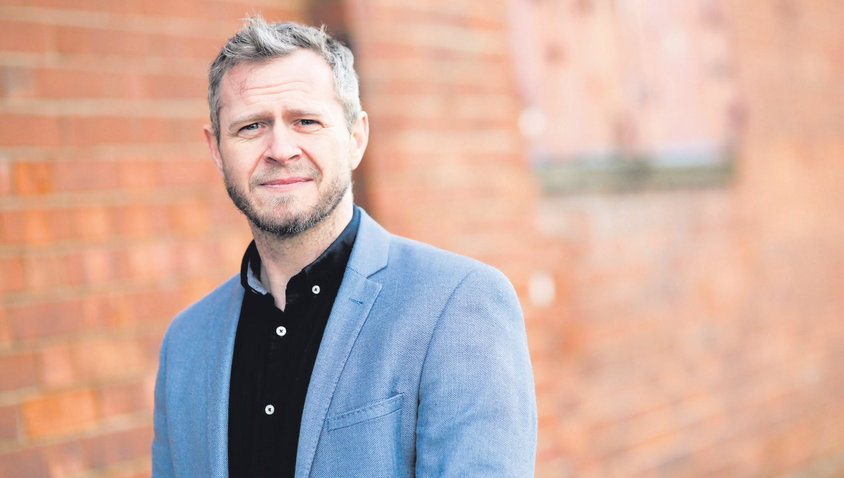What is the social value of heritage – and how do we measure this?
23 Mar 2021
Guest contributor Stephen McGarry explores the social value of heritage and the role it plays in helping communities to recover from the pandemic. Stephen was recognised in the 2020 Social Enterprise Futures Roll of Honour and has been supporting social enterprises to start and grow for over 20 years.

As my lovely granny would have said: “We know the cost of everything but the value of nothing!” When it comes to how we view success as a society, she wasn’t wrong.
The idea that GDP remains the go to ‘value’ – as to whether a country is doing well – is outdated. (This echoes the sentiments of Robert Kennedy, some 53 years ago.)
We know that social enterprises across many sectors – and particularly within heritage – add significant social value to society. Their value is not captured by GDP alone.
So, what do we need to know?
Recognising the social value of heritage
The drive to measure our impact has been increasing for many years. Heritage and other purpose-led organisations seek to prove their value to funders, visitors, customers and a range of other stakeholders.
Heritage organisations provide considerable outcomes for the betterment of our society: from an economic, social and environmental perspective. For example: increasing participation in arts and culture, providing volunteering opportunities that improve wellbeing, through to the physical and mental health benefits that lead to a better quality of life for those that engage.
Centres of heritage contribute to safer and stronger communities by providing spaces where communities can meet and build a sense of belonging, whilst maintaining or developing community understanding of identity.
This is beginning to be recognised by decision-makers from the United Nations Sustainable Development Goals (SDGs), where the international development agenda refers to culture for the first time.
Heritage and other for-purpose organisations deliver outcomes that contribute to many of the 17 SDGs and are embedded within SDG11: building sustainable cities and communities.
The outcomes-focused approach is further reflected in national and regional agendas through the great work of organisations like the Carnegie Trust, which are influencing policy and delivering innovative practice across the UK and Ireland.
Tools for measuring the impact of heritage
But how do we go about measuring our impact? There are so many different tools and methodologies available and types of evidence that we can gather. It can be dizzying.
The best place to start, as the old adage goes, is at the beginning. A simple Logic Model can provide you with a simple, visual and effective way to demonstrate how investment in resources leads to outcomes and long-term impact. The Heritage Fund provide a great, simple guide here.
Measuring value can be impactful (pardon the pun!) for heritage organisations to develop a business case or to demonstrate the value of their work as evident from examples like:
- Open House Festival (NI) that utilised SROI (Social Return on Investment) to demonstrate their case for asset transfer as they sought to access the Bangor Courthouse from a government department.
- Clyde Muirshiel Park Authority (Scotland) utilising SROI to measure and report on the social impact of their work.
- Rockfield Centre (Scotland) placing social impact and outcomes to the fore of reporting.
Heritage, arts and culture will help communities rebuild
More than ever before, we need heritage, arts and culture – and the wellbeing outcomes that are derived from engaging.
Organisations are innovating during the pandemic to bring us closer to heritage. As we look to a route map out of lockdown, heritage, arts and culture can provide more opportunities to improve our wellbeing, expand our horizons and improve our quality of life.
Access support: The Heritage Trade Up Programme
There has been (at most) a limited role in this recent crisis for those working in heritage. The challenges looking forward are considerable.
But so are the opportunities. The Heritage Trade Up Programme [run by the School for Social Entrepreneurs, in partnership with the National Lottery Heritage Fund] provides an opportunity for heritage leaders to strengthen the financial resilience, governance capabilities and entrepreneurialism of heritage organisations.
The programme will unite leaders from a broad range of heritage organisations to address challenges together. It will support them to develop the skills, knowledge and attitudes needed to develop enterprise models, and deepen social and/or environmental impact. I warmly encourage you to apply now.
Stephen is a member of our Heritage Trade Up Steering Group, helping to shape the programme around key needs of the sector.

